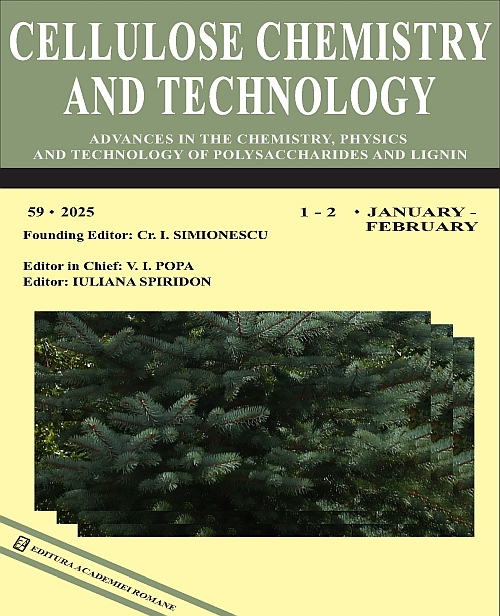|
Title
Mechanical, weathering, thermal, and fire performance of tree bark reinforced wood plastic composites
Authors
SEFA DURMAZ, EMRE AKSOY, OZLEM OZGENC KELES and UGUR ARAS
Received
March 9, 2025
Published
Volume 59 Issue 3-4 March-April
Keywords
tree bark, TGA analysis, DSC analysis, LOI test, natural weathering, wood plastic composites
Abstract
This study investigated some technological properties of wood plastic composites (WPCs) containing tree bark. Tree bark
led to a decrease in the mechanical properties of WPCs. The flexural strength (FS) and modulus of elasticity (MOE)
decreased with an increasing tree bark content by 23% and 39%, respectively, while the decrease of tensile strength was
of 35%. On the other hand, outdoor weathering testing revealed that increasing tree bark content slowed UV degradation
and reduced surface color fading. This effect is attributed to the inhibition of photodegradation reactions due to the higher
antioxidant activity of the bark. TGA and DSC analyses have revealed the potential of tree bark to significantly influence
material properties. The TG analysis indicated that tree bark enhances the degradation onset temperature, while the high
lignin content in tree bark, compared to wood, increases the maximum degradation temperature. Moreover, the DSC
analysis showed that the melting enthalpy (∆Hm) increases with adding tree bark. The high extractive content in tree
bark not only enhances thermal movement, but also promotes crystallization. However, an increase in tree bark content
led to a limited improvement in fire performance by LOI values, possibly because of the higher extractive content.
Link
https://doi.org/10.35812/CelluloseChemTechnol.2025.59.32
|



